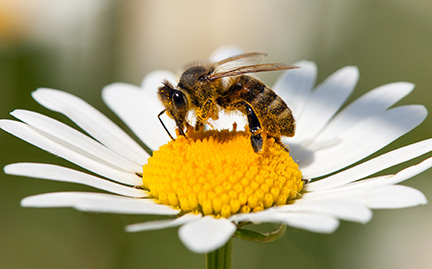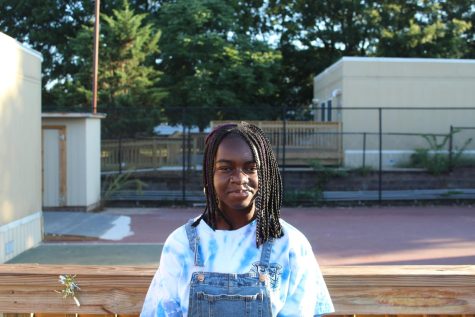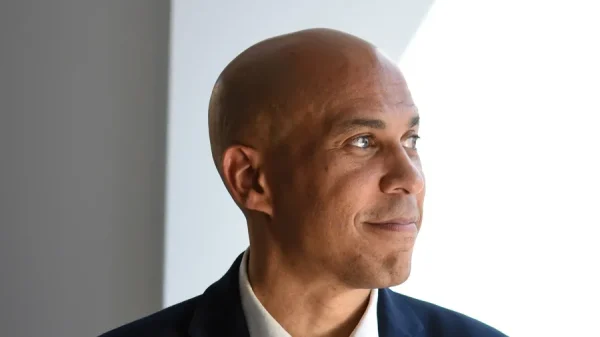Honey bee life spans dwindle to half

Photo from World Wildlife Fund
Honey bee life spans have decreased by 50% since the 1970s according to a study by the University of Maryland, concluding that genetic reasons may be behind the decline.
In the 1970s the average life span for a honey bee was 34.3 days. Now, it’s only 17.7 days. When researchers modeled the effect of a 50% life span reduction, they found that less honey production and fewer honey bee colonies would be the consequence. Senior Sarah Cho, president of the Chesapeake Bay Coalition Club, emphasized how important it was that this issue be a priority, particularly around Poolesville.
“There is definitely more room for prioritization, especially in Poolesville,” said Cho. “There are so many farms that rely on bees and other pollinators to help with the yield so I think we could do more in terms of legislation.”
Senior Leah Becker, who trapped a swarm of bees in her junior year, wishes to prioritize a different type of bee.
“There’s a lot of hype around [bee life spans] but a lot of the subtleties are lost,” said Becker. “Most of the hype surrounds honey bees when–although honey bees are great and fun–native bees really are the most important issue environmentally and for pollination. Honey’s nice but if we don’t have food…that’s a lot more important.”
As for the possible causes behind the decline of honey bee life spans, researchers generally have pointed to environmental factors, the use of pesticides, and recently genetics. Several beekeepers have also turned to varroa mites–parasitic mites which cause debilitating diseases in honey bees–as one of the bigger factors impacting life spans. Junior Milo Rickert comes from a beekeeping family and reported how the loss has personally affected them and their family.
“There’s going to be a decrease in the number of bees we can keep and there’s also going to be a lot more costs for us because we’ll have to keep re-establishing the hives and taking care of them in more drastic ways,” said Rickert. “We have bee blankets around their hives to keep them warmer. We’re going to have to keep getting things like that to keep them going.”
In the journal Scientific Reports, Anthony Nearman and Dennis vanEngelsdorp published a study that showed that not only were honey bee life spans on the decline, but that genetics could be an additional cause. Initially, the experiment was designed to examine the effects of feeding plain water to lab bees on top of their usual sugar water diet. However, while doing this, they found that bees in previous experiments lived longer, and that they’d been living gradually shorter lives since the 1970s. The honey bees in their experiments had no exposure to harmful elements such as pesticides, which led them to consider genetic reasons behind the decrease.
To confirm the reasons behind honey bee life reduction, scientists will next turn to life spans around the world to compare environmental and genetic factors.

Belinda is a freshman in the Humanities program and this is her first year working with The Pulse. She does Taekwondoe, but would like to get into a school...







